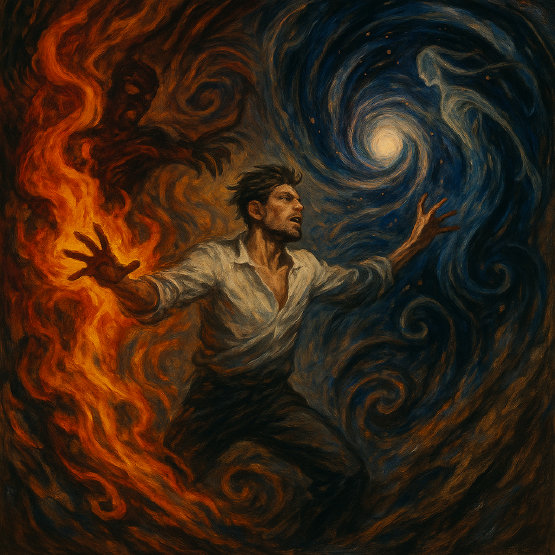The Psychology of Taboo: How Do Humans Find Balance Between Desire and Norms
The Voice of the Unconscious, the Birth of Taboo
The human inner self seems to move as if it has always had two hearts. One is directed towards society, while the other beats towards our primal inner desires. Various taboos exist between these two hearts, and these taboos hold significant psychological meaning. Sigmund Freud sought the starting point of this conflict in the unconscious, emphasizing that a desire to 'do something' is repressed and hidden deep within the human psyche. Such repressed desires manifest as taboos, which exist to maintain the order of society. When we learn that 'we should not do something,' it is already a testament to the existence of a desire to 'do it' within us.
The Paradox of Prohibition, the Reflection of Desire
In modern psychology, the paradox of prohibition explains how repression affects our desires. The demand not to do something often intensifies that desire. For instance, when one resolves to diet, the craving for chocolate may increase, as prohibitions often stimulate desires. In such situations, the stronger the repression, the more amplified the desires become, and prohibitions can sometimes act as enhancers. Therefore, rather than suppressing us, prohibitions can paradoxically contribute to the growth of our desires.
The defense of the self, but there is no complete liberation.
In these conflicts, the mediator is the ego. The ego regulates the clash between desires and norms, often trying to protect itself through defense mechanisms. However, these defense mechanisms are merely temporary measures, and the repressed emotions continue to swell in the unconscious. This process often manifests as anxiety and suffering. Ultimately, the more one tries to avoid it, the louder the voice of the unconscious becomes, which in turn causes more stress for the ego.
Social taboos, between order and repression
Taboos have a profound impact not only on the individual psyche but also on social groups. The norms and taboos of society manifest in various forms such as law, morals, and culture. While they are necessary for public safety and order, they can also restrict individual autonomy and expression. In modern society, there is a growing movement to understand personal desires rather than simply conforming to norms. This shift prompts us to reflect on how we accept and apply social norms.
Emotional Liberation, Art and Healing
Repressed emotions seek to be expressed through various channels. Art, creativity, and psychotherapy serve as outlets for this expression. Drawing, writing, and music creation are processes that externalize inner conflicts. Additionally, activities like psychological counseling, meditation, and journaling allow us to engage in dialogue with ourselves, helping us understand desires and taboos as coexistable elements rather than merely opposing forces. True liberation begins with moving beyond repression to understanding and acceptance.
The Path Toward the Future, The Encounter of Technology and Insights
We are currently at the intersection of psychology and technology. Artificial intelligence technologies that recognize emotions and digital tools that aid self-reflection are helping individuals to understand and tune their desires more deeply. The important point is to accept and regulate desires as part of oneself rather than viewing them as enemies that must be overcome. This process may be the path to resolving our inner conflicts.
In conclusion: Humans are the orchestrators.
We are beings who seek balance every day between desire and taboo, self and instinct, norms and freedom. This process can be painful and sometimes confusing, but it ultimately shapes the depth of human existence. Simply breaking taboos is not the answer. Understanding taboos and recognizing why they arise is an important starting point for genuinely mastering desire and experiencing freedom. When we learn how to embrace desire, it becomes the first step toward finding peace in the internal wars of the individual and, ultimately, guiding the world in a better direction.

Post a Comment